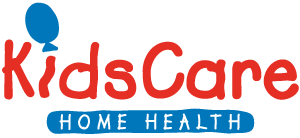
Home health care services are on the rise, and the growth isn’t expected to slow anytime soon. Pediatric home health care, in particular, is a rapidly growing sector that provides medical care, therapy, and other valuable support services to children with complex medical needs in their homes.
Home health care pediatric nursing can be highly rewarding. However, given the unique setting of home health nursing, the work presents unique challenges not encountered in other settings, such as hospitals. Like any new role, there is a period of adjustment, especially for pediatric nursing professionals used to the routine and professional environment of hospitals, rehabilitation centers, and other medical care facilities.
There are never going to be the same clearly defined roles and responsibilities that exist in those environments, and learning to cope with the home setting will necessitate a willingness and ability to be flexible. Therefore, to prepare nurses interested in or new to children’s home care, today’s blog discusses home health care tips to ease the transition and support positive interactions.
From the first appointment to ongoing home health care services, this blog will guide home health nurses on some of the most important aspects of the job and share best practices for successfully managing a rewarding career in home health care services.
What is Home Health Care for Children?

The definition of home health care for children includes a range of services, including skilled nursing, physical therapy, occupational therapy, speech therapy, and medical equipment provision that is administered in the comfort of the child’s home rather than a medical care facility.
This type of home health nursing is designed to meet the medical and developmental needs of children who require skilled nursing care or therapy services. It is often recommended for children with complex medical conditions or disabilities that require ongoing medical management, monitoring, or rehabilitation.
The key elements involved in home health care for children can include skilled nursing care, rehabilitation therapies, medication management, medical equipment management, disease management and education, nutritional support, emotional and psychosocial support, and care coordination and collaboration.
These aspects of pediatric home health care are tailored to meet the individual needs of each child, and the specific services provided will depend on the child’s medical condition, developmental stage, and care plan goals.
The First Appointment: Establishing Trust and a Healthy Relationship
When beginning work with a new patient, it’s critical to establish a trusting and respectful relationship with the child and their caregiver(s) at the onset of care. First impressions are everything and can set the tone for the relationship moving forward.
Given the nature of the working environment and the patient’s age, it’s important for home health care nurses working with children to be dependable, organized, responsible, trustworthy, patient, caring, and compassionate. Since families allow home care workers into the privacy of their homes, there is an expectation for the home health nurse to also be trustworthy, honest, and respectful – for good reason.
Every home is different in that they may have specific rules or customs to follow while in the home or interacting with family members. Therefore, it’s the responsibility of the home health care provider to honor and respect the rules and customs of the household. For example, do they remove shoes when entering the home? If so, then do so as well.
The dynamic between the home health nurse and parents or caregivers is also critical. While nurses are the experts in the fields of medical care and therapy, the parents are the experts in their children. They have the authority to refuse or question treatment, and honest discussions based on respect and understanding are encouraged to reach resolutions.
The parents are also the authority in determining general, non-prescriptive routines and procedures for their children, and the home health care nurse is expected to respect this authority as long as it does not compromise the care of the child. Therefore, all parties involved benefit from respecting boundaries and clearly managing expectations, which will help establish a trusting and healthy relationship throughout the care journey.
Establishing a Routine: Organizing Your Work Efficiently

Speaking of managing expectations, routines are critical when working with children. Not only do they give children a sense of comfort in knowing what to expect, but establishing health care routines for each patient can also help keep home health nurses and therapists reach goals for care in a timely, efficient manner.
In this line of work, time is especially important to manage. Given the time it takes to travel from home to home as well as the time it takes to document care progress, time management is a worthy skill and can help nurses stay on track with prescribed care plans. Following are some helpful tips for productive time management and establishing productive and helpful routines when providing home health care services.
How to Organize & Manage Time Effectively
Time management involves a healthy amount of planning and organization. Every home visit should be carefully planned prior to the appointment to ensure you have all of the tools and equipment needed, as well as the cooperation from caregivers.
- Plan action items for each visit that allow enough time for required or necessary care tasks, communication with caregivers, and clean up.
- Create monthly calendars for caregivers so they do not require daily reminders.
- Utilize an hour-by-hour daily planner to schedule/reschedule patient visits easily.
Techniques for Creating a Routine That Suits the Child's Needs
Creating a routine that suits the child’s needs in pediatric home health care involves understanding the child’s unique requirements and tailoring the schedule accordingly. Begin by conducting a thorough assessment of the child’s medical condition, developmental stage, therapy requirements, and any specific care needs. It’s also important to understand their daily routine, including sleep patterns, meal times, medication schedules, therapy sessions, and other activities.
It’s also important to account for the child’s abilities, limitations, and energy levels when designing the routine. Ensure that activities and therapies are scheduled at times when the child is most alert and receptive and incorporate breaks or rest periods to prevent overexertion and accommodate the child’s need for rest or downtime (as needed).
And finally, maintain clear and efficient communication with parents, caregivers, and other healthcare team members. Clearly communicate appointment times, changes in schedules, and any important information related to patient care. Effective communication helps avoid misunderstandings and minimizes wasted time.
Tips for Managing Paperwork, Medications & Equipment
A big part of home health care nursing is completing and submitting paperwork, including daily notes, evals, and progress notes. With some organization and planning, this aspect of the job will become streamlined and more manageable as time progresses. Following are a few tips for managing paperwork, medications, or equipment for each family.
- Organize tools and equipment for patients in easy-to-transport bins.
- Document everything! Not only will you need it for reporting, but it’s best to have notes for reference (especially on busy days with multiple home visits).
- Create a document of verbiage frequently used during routine visits and evaluations for paperwork and documentation purposes.
- Keep a running document of beneficial resources for families.
Providing Therapy: Best Practices and Recommendations
Earlier in the post, we touched on the following aspects of home health care nursing duties, and this next section will provide more detail for each.
Skilled nursing care: Pediatric home health care may involve skilled nursing services, such as administering medications, monitoring vital signs, managing medical equipment, wound care, and coordinating with the child’s healthcare team.
Rehabilitation therapies: Children who require physical therapy, occupational therapy, or speech therapy can receive these services in the comfort of their homes. Therapists work with children to improve mobility, strength, coordination, communication, and cognitive skills.
Medication management: Pediatric home health care nurses assist with medication management, including administering medications, monitoring their effectiveness, and ensuring proper dosage and timing.
Medical equipment management: Children who rely on medical equipment, such as ventilators, feeding tubes, or central lines, receive assistance in managing and maintaining these devices at home. The home health nurse should ensure proper functioning, hygiene, and safety of the equipment.
Disease management and education: This involves educating families about managing and coping with their child’s medical condition, including teaching parents or caregivers about medication administration, disease-specific care guidelines, symptom management, recognizing signs of complications, and emergency preparedness.
Nutritional support: Children who have specialized nutritional needs, feeding difficulties, etc., will receive nutritional support, which may involve monitoring growth and nutritional status, administering feeds, or providing dietary guidance.
Care coordination and collaboration: Consistent collaboration with the child’s primary care physician, specialists, therapists, and other healthcare providers to ensure comprehensive and coordinated care, including communicating updates, progress, and any concerns to the healthcare team.
Overall, the key to making each home visit or therapy session as comfortable and effective as possible. There is always the potential for setbacks or difficult situations, and staying calm and professional, and objective will help with managing those situations.
Also, although home health care nursing involves working independently, collaboration with the child’s family, medical care team, and other associated medical professionals is critical to offering and maintaining the best care possible.
Maintaining Relationships: Communication and Emotional Support

Communication, as mentioned throughout this post, is the key to smooth processes and outcomes in pediatric home health care services. Methods and systems of communication should be established from the very beginning of the relationship, which may entail written and verbal communication protocols.
Although disagreements and conflicts can occur, maintaining very clear and open lines of communication between caregivers and other medical team members can help avoid misunderstandings. However, if there is a repeated breakdown in communication or an inability to resolve communication difficulties, a nursing supervisor may need to get involved to help problem-solve.
Home care nursing that involves children requires a healthy understanding and respect for the emotional impact on both the child and the family. Therefore, it’s very important to be both aware and compassionate while offering emotional support, guidance, and resources to help families cope with the challenges of managing a child’s health condition at home.
However, home health nurses are responsible for maintaining an appropriate professional distance while at the same time supporting and respecting the family’s naturally established boundaries. For example, some families may try to incorporate the home care nurse into the family unit in order to decrease the stress of having an outsider in the home.
However, it’s important for the nursing professional to work with the family in establishing boundaries, beginning by identifying areas where it is inappropriate for the nurses to be involved, such as during family arguments, decisions about family activities, or even lifestyle choices.
Continuous Learning: Keeping Up with Medical Trends and Advances
Aside from everything else we have mentioned so far, there is one more aspect to providing the best possible in-home health care: continuing education. Staying abreast of the latest research and advances in any field of health is critical to providing the best care possible.
Whether this is gained through independent study and research, collaborative interactions with colleagues, or further training and certifications, continuing education is invaluable to the home health industry and the quality of care provided.
In-home pediatric nursing is rewarding and can be challenging, and it requires excellent communication abilities, organization, dependability, trustworthiness, patience, caring, and compassion. However, many find working one-on-one with patients in the comfort of their homes highly gratifying, as it fosters forming deeper relationships with the children.
Other than the personal gratification of in-home care, other perks include having more independence and autonomy than in traditional nursing roles, including the flexibility to pick your own schedule. And while many in-home pediatric nurses are RNs, the job is also a great entry-level role and well-suited for licensed vocational nurses (LVN) or registered nurses looking to gain more experience and potentially earn their bachelor’s degree in nursing.
If providing pediatric nursing, occupational therapy, or child speech therapy at home is appealing, head over to KidsCare Home Health to learn more. We are a leading pediatric home health agency serving children with special needs across the country. We focus on nursing, speech therapy, physical therapy, and occupational therapy as well as case management for children up to 18 years old.
KidsCare Home Health is an ethical, therapist-owned and operated home health company. We are always looking for talented and dedicated people to join our KidsCare team. If you have a passion for working with pediatrics and making a difference in your community, while enjoying work-life balance, KidsCare is the place for you!
















